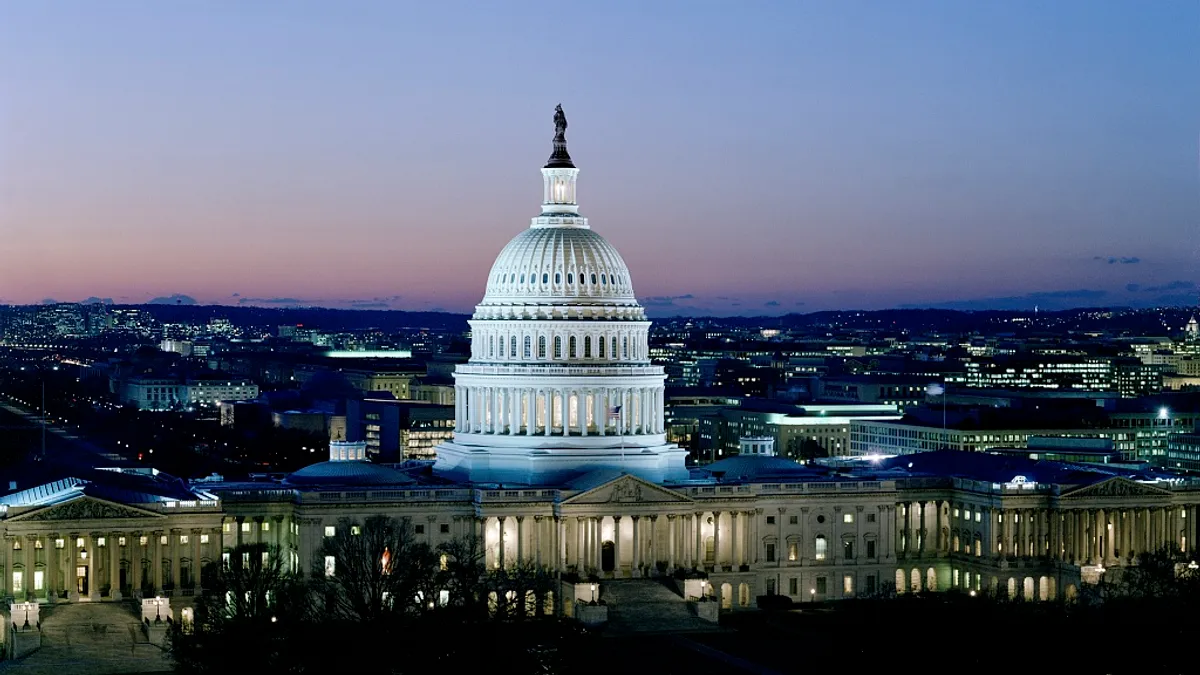Dive Brief:
- The District of Columbia’s Property Assessed Clean Energy (DC PACE) Program will fund a $700,000 renovation of the Phyllis Wheatley Young Women’s Christian Association, including efficiency, LED lighting, solar and water upgrades.
- The Phyllis Wheatley YWCA provides critical housing and supportive services to women, and the project marks the first the U.S. Department of Housing and Urban Development (HUD) has approved the use of PACE funds for a HUD-assisted mixed finance public housing property.
- President Obama wants to see 300 MW of renewable energy installed at federally-subsidized housing by 2020; the D.C. project will support 31 kW of solar once completed.
Dive Insight:
Public housing is not the usual direction for PACE funding, but the federal government – looking to expand renewable energy and efficiency options – has funded a D.C. project aiming to bring upgraded lights, water heating and solar power. The project will result in almost $6,000 in decreased annual utility bills and is expected to yield about $90,000 in savings over the project's lifetime.
“This project proves that clean energy upgrades are good for the bottom line,” Bracken Hendricks, CEO of Urban Ingenuity and DC PACE program administrator, said in a statement. “Whether that means freeing up dollars for vital human services, or cutting expenses for business owners, a green economy is a better economy for people in need, and that is the message of PACE.”
District of Columbia PACE funding now tops $1 million. The program's financing "is an important economic development tool that drives new private capital investment into deep utility savings projects that preserve affordable housing and cut utility bills for District residents,” said DOEE Director Tommy Wells.
The rather small project – less than a $1 million budget and a 31 KW solar system – belies the significance of the investment, however, according to CleanTechnica. The outlet points out that while PACE legislation exists in 29 states as well as D.C., so far the projects have largely been limited to California commercial improvements.
“At a time when solar energy is growing exponentially around the country, smart policies like PACE financing can make renewable energy a cornerstone of community-based economic development,” said Rhone Resch, President and CEO of the Solar Energy Industries Association. “PACE is a vital part of the infrastructure necessary to build a clean energy economy and this project is a good example of how it can be applied.”















